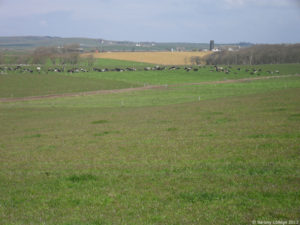Avoiding Listeria
1 February 2017Listeria spp. are ubiquitous environmental bacteria and are also found in the faeces of normal animals. They will multiply in silage following entry of air and when pH is ≥ 5.5. Spoiled silage is traditionally blamed for most outbreaks of listeriosis but in some cases has not always been fed. A wet winter would leave muddy conditions which could increase disease risk through ingestion of soil.
- Check silage analyses for high pH and/or high ash content (>80g/kg DM) indicating large amounts of soil contamination at harvest e.g. cut very low, molehills or wet weather at harvest.
- Avoid feeding silage that is either obviously spoiled or from punctured bales. The top layer of the pit and the outer layer of bales are highest risk.
- Clean away uneaten silage before adding more.
- Make silage accessible to sheep avoiding trampling by muddy feet.
- If rolls are fed directly onto the ground change the area where feeding takes place.
Heather Stevenson, heather.stevenson@sac.co.uk
Sign up to the FAS newsletter
Receive updates on news, events and publications from Scotland’s Farm Advisory Service

